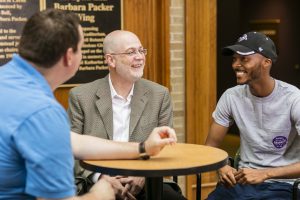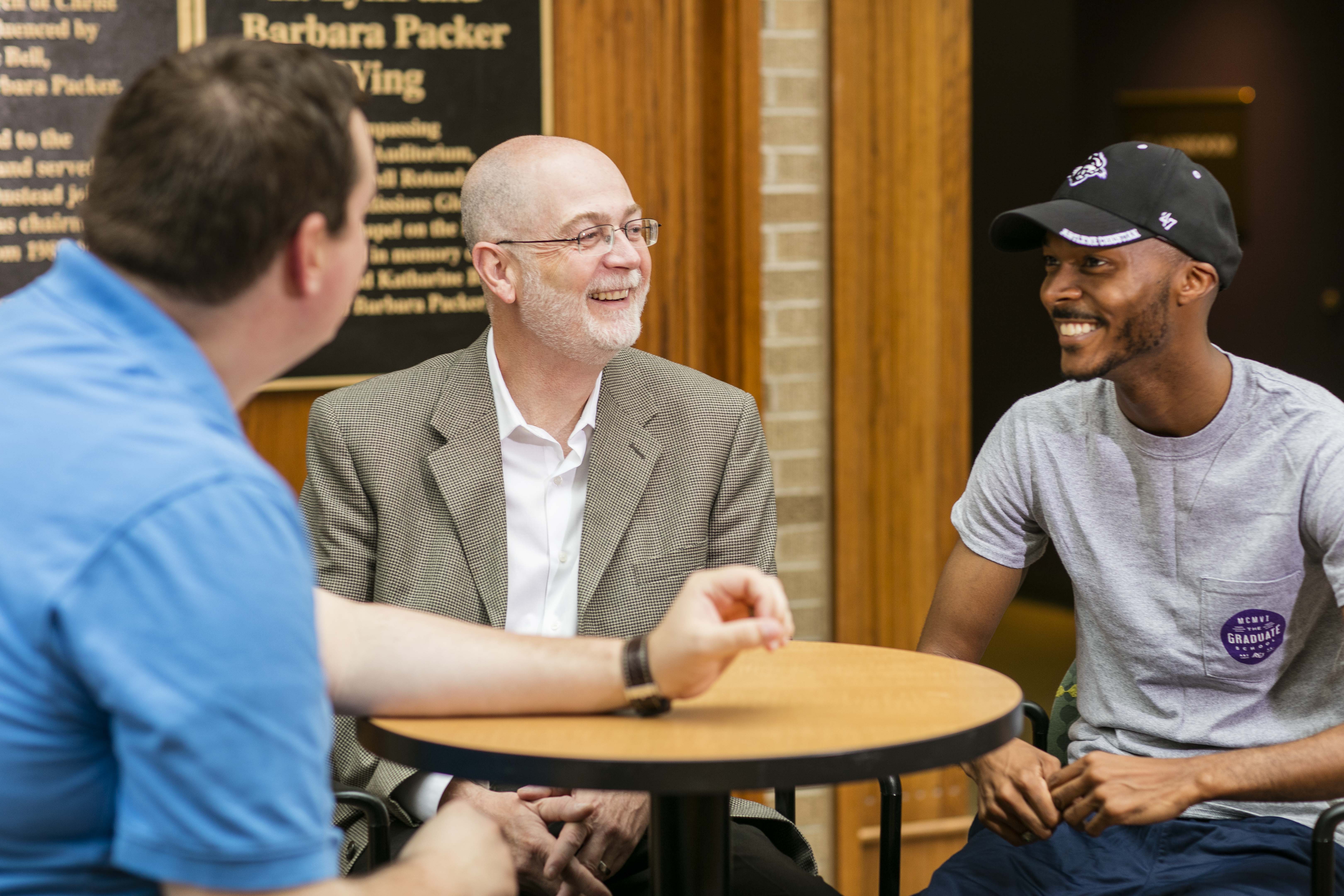Never. Stop. Seeking.
When I was just 3 years old, my family was invited to the home of one of the members of the church for which my dad had recently started preaching. They lived in a grand old house with a seemingly endless maze of rooms, each filled with artwork and antiques. As our host gave us a tour, she would pause before various pieces and tell about how or when or where they had been acquired. Passing by an antique chair, she patted it and said, “Oh, there’s a story behind this chair.”
After dinner was finished and the adults were chatting over coffee, my mom looked up and realized that I had left the table. Worried that I might break something expensive in a house filled with priceless objects, she began moving from room to room, trying not to panic. She was less than pleased to discover me in one of the rooms that we had visited earlier, with a piece of priceless furniture overturned on the floor. She gaped at me and asked, exasperated, “What are you doing?!” To which I answered, matter-of-factly, “I’m looking for the story behind this chair.”
I sometimes wonder if hearing that story repeated throughout my childhood is the reason why one of my favorite songs, as a teenager, was “The Seeker” by The Who, the opening lyrics of which went as follows:
I’ve looked under chairs
I’ve looked under tables
I’ve tried to find the key
To fifty million fables
They call me The Seeker
I’ve been searching low and high
I won’t get to get what I’m after
Till the day I die
 I’ve thought of myself as a seeker for as long as I can remember. I may not have always used that word, but I’ve always had an interest in getting to the bottom of things, in discovering the story behind them. I’ve always been taken with stories of seekers, particularly Biblical characters, and the theme of seeking runs throughout the Bible. The Psalms alone are filled with reminders to “seek the Lord.” The writer of Psalm 63 begins:
I’ve thought of myself as a seeker for as long as I can remember. I may not have always used that word, but I’ve always had an interest in getting to the bottom of things, in discovering the story behind them. I’ve always been taken with stories of seekers, particularly Biblical characters, and the theme of seeking runs throughout the Bible. The Psalms alone are filled with reminders to “seek the Lord.” The writer of Psalm 63 begins:
O God, you are my God,
earnestly I seek you,
my soul thirsts for you;
my flesh faints for you
The New Testament, as well, has many references to seeking. Jesus famously challenges the hearers of the Sermon on the Mount to “seek first his kingdom.” The writer of Hebrews assures us that God “rewards those who earnestly seek him.”
One of the frustrating features of late-20th century evangelism was that churches began referring to those who were not yet Christians, or those in the initial stages of their Christian walk, as “seekers.” The problem wasn’t that these people weren’t seekers, but the implication that they would eventually reach a stage of development when they were no longer seekers. And, while that may not be the language used by 21st century churches, the idea behind it has held on. We think of seeking as something for curious agnostics and newborn Christians. Many long-term Christians have simply stopped seeking. Or, if we are seeking, we’ve limited our scope to the new and different. None of this same ol’, same ol’ style seeking.
Many ministers fall into this same trap. We finished our learning in school and now we’re simply seeking whatever is going to get people in the doors, filling seats, and writing checks. We’ve stopped digging into deeper understanding in our reading, our conversations, and the basic habits and practices that shape the Christian life.
And yet, it’s through these basic habits and practices that we are most likely to encounter Christ. Through prayer. Through meditation on Scripture. Through the sharing of songs and Communion with the people of God. Through service and hospitality and fellowship. Through study. These are the things that form us. This is how we draw near to God. This is how we come to know Christ.
 One of the things I most appreciated as a student in our Graduate School of Theology, and continue to appreciate as an employee of the GST, is the consistent emphasis on being a community of learners and disciples, of teaching and modeling how to be seekers. The GST understands the importance of knowledge, but as something that leads to a deeper wisdom, that understands theology as “faith seeking understanding.”
One of the things I most appreciated as a student in our Graduate School of Theology, and continue to appreciate as an employee of the GST, is the consistent emphasis on being a community of learners and disciples, of teaching and modeling how to be seekers. The GST understands the importance of knowledge, but as something that leads to a deeper wisdom, that understands theology as “faith seeking understanding.”
When Jesus enters the temple in chapter 21 of Matthew’s Gospel, he begins turning over tables because he came looking for a house or prayer and found something else entirely. The question I find myself asking increasingly often is what Christ might find if he visited our “house of prayer”? What might he find if he just visited our houses? Might he not start turning our lives over and asking, “What’s the story here?”
It’s easy to lose sight of our story and to find ourselves caught up in a different one, one in which we’re the central character, rather than Christ. To remain true to our calling as followers of Christ and finding our identity in him takes honesty and humility, discipline and courage, a commitment to discerning the truth and keeping an open mind. The shared commitment of all Christians, whether standing in the pulpit or sitting in the pew, leading singing or working in the nursery, teaching Sunday school or planning a potluck, is that we must never stop seeking.
About the author: Kester Smith (’15) graduated with a Master of Divinity from Abilene Christian University’s Graduate School of Theology and is also currently pursuing a MA in Theology. Kester is the Director of Student Formation and Vocational Discernment for the College of Biblical Studies at ACU.

